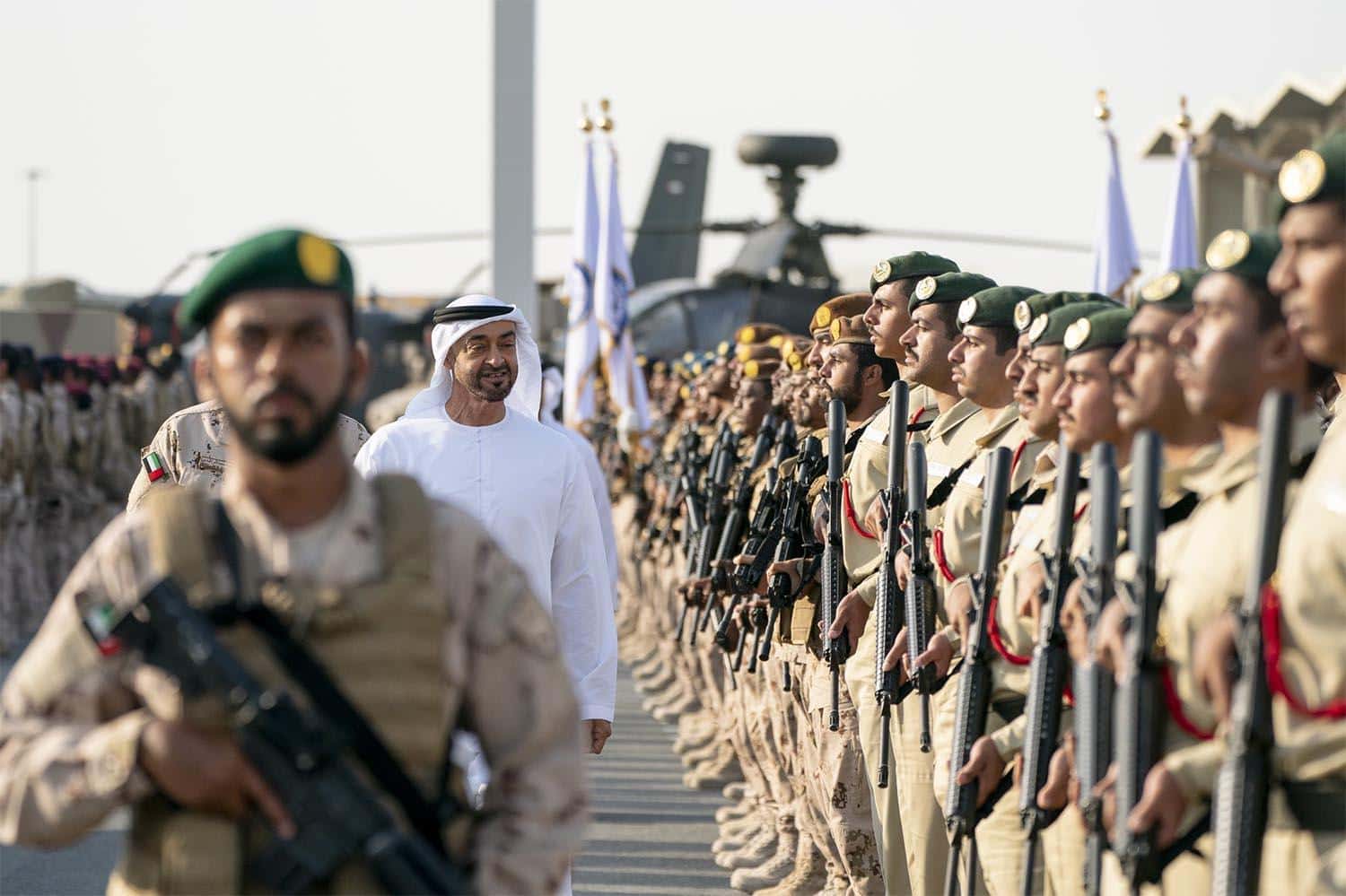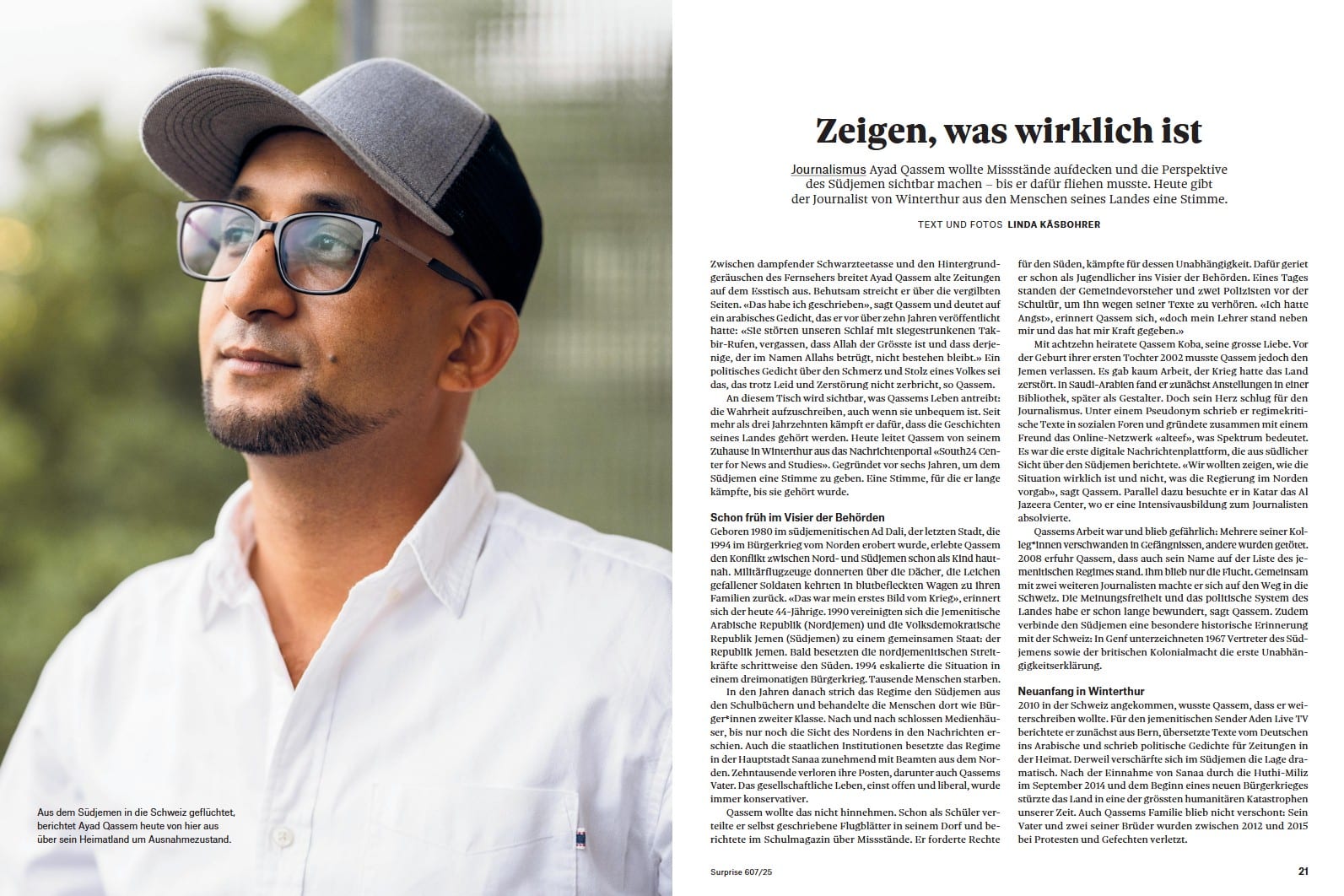
آخر تحديث في: 21-01-2022 الساعة 8 مساءً بتوقيت عدن
Farida Ahmed (South24)
The huge reactions and condemnations by several states towards the Houthi attack that targeted Abu Dhabi demonstrate that the Iran-backed group's transgressions in the region crossed the line. On Jan 17th, the Houthis carried out an attack that targeted Abu Dhabi Airport, an oil refinery in Mussafah, and a number of other important sites and facilities which killed three persons and injured six [1]. The attacks, which probably used drones, as suggested by the Emirati News Agency [2], came after the Houthi public threats days earlier to strike the Emirati depth [3]. However, in a statement [4], the Houthis said that the operation was carried out by using five winged ballistic missiles in addition to a number of drones.
Obviously, the 10 days of fighting the Houthis and expelling them from Shabwa governorate in South Yemen by the Southern Giants Forces cost them heavy losses. The Southern Giants Forces, that receive big Emirati support and have been trained for years since established in 2015 before and during their fight in the Western Coast, have angered the Houthis and prompted them to seize the Emirati ship "Rawabi" during passing through Hodeidah claiming it was carrying military equipment [5]. After the full liberation of Shabwa by the Giants Brigades who entered Harib District in Marib, the Houthis responded by launching the so-called “Operation Yemen Tornado” [6] to retaliate “Operation South Tornado” which was launched on Jan 1st in Shabwa. It seems that the Houthis resorted to this escalatory step after losing another oil-rich governorate over which they hoped to seize control.
It was not the first time Abu-Dhabi has been targeted by drones according to previous Houthi statements [7]. The Dubai Airport was targeted in August 2018 but the UAE denied those claims at that time [8]. This demonstrates that the Emirati depth has been under the Houthi threats as much as the Saudi depth. The UAE’s recent active support of the “Giants Forces” fueled the Houthi incentive to expand their goals towards the East of the Arab Peninsula this time. Parallel to that, The KSA condemned the attack on Abu Dhabi and described it, in a statement issued by Saudi Foreign Ministry,[9] as being “cowardly terrorist practices”.
Likewise, several Arab and Foreign states condemned the attacks, The US National Security Adviser Jake Sullivan said: “We will work with the UAE and international partners to hold the Houthis accountable [10]. He added that the UAE has the right to respond to what he describes as “the terrorist attacks and the vicious criminal escalation."
The latest Houthi escalation has been necessarily followed by Emirati request from Washington to add the group again to the Terrorist List as reported by Bloomberg [11] citing a source close to the Abu Dhabi Government. The American Decision, in Jan 2021, to remove the Houthis from the US Terrorist list the day after Joe Biden announced the end of US support for the Saudi-led military operations in Yemen proved to be miscalculated by the new American Administration. Since then, the Houthis continued building their military capabilities and seizing larger geographical areas since the beginning of the last year. Moreover, they are still launching their missiles towards several important strategic locations in and outside Yemen.
International calculations
The international solidarity and the large condemnations after the latest attack confirm that the UAE is a state with an important economic artery. It enjoys a safe location and vital economy amid a troubled region. Furthermore, expatriates constitute about 90% of the UAE population, and all of them are central to the economy [12]. As for many states that have mutual economic interests with the UAE, such attacks pose a threat against their interests and their citizens who live in the targeted territories. This underscores the need for a clear international stance against the Houthi transgressions which threaten international peace and security in the region.
As for the American position, it seems that Washington is facing several options currently. Since Joe Biden took office, his strategy restored the diplomatic momentum lost by the former Administration's foreign policy. It reduced the military support of the Arab Coalition in Yemen, and appointed a special envoy. However, the role of Timothy Linderking has been limited to delivering messages among the conflicting parties.
Linderking’s work, along with that of the UN Envoy, Hans Grundberg, seemed slow compared to the intense activity in the first half of last year. This prompted the Saudi-led Coalition to intensify its accurate strikes against military targets in Sanaa over the last months.
The United States could accept adding the Houthis to the Terrorist List as a possible option, as the US Special Envoy to Yemen does not act as a peace mediator. Thus, the US has no fears about losing a distinctive role in the political negotiation process in Yemen; especially that one of the conflicting parties poses a threat against the interests of the United States and its allies in the region. The former US Administration added Iran’s “Revolutionary Guards" to the Terrorist List [13] but this didn’t obstruct the appointment of a Special American Envoy to Tehran despite the strained political relations between the two countries, and there are ongoing negotiations about the Iranian nuclear file. Consequently, if Washington decides to re-list the Houthis in the Terrorist List, there will likely be no impact on continuing the efforts of its Envoy to Yemen.
This possibility could pave the way for the UN Envoy “Grundberg” to push for peace and press the Houthi to be seriously involved in light of the continuous international and regional condemnation of the escalation policy adopted by the Houthis. On the other hand, Washington could adopt an alternative approach to deal with the development of events in Yemen and the region rather than adding the Houthis to the Terrorist List. This may include increasing intelligence coordination, providing logistical support to the Arab Coalition States, and sanctioning more Houthi leaders [14].
The contact between the US Secretary of Defense, "Lloyd Austin" and the Crown Prince of Abu Dhabi, "Mohammed bin Zayed", may indicate features about how to address the new Houthi threat. They discussed military and security cooperation between the UAE and the United States and areas of defense coordination between the two countries following the recent terrorist attacks [15].
It was remarkable that the latest airstrikes in Sanaa largely focused on Houthi leaders along with the military targets. is likely that this strategy will continue more intensively in the coming period, especially since the first operation after the attack on Abu Dhabi targeted Houthi military leaders including "Jalal Ahmed Dhaifallah Al-Jalal'' and five of his companions [16] without revealing where they were killed. However, other attacks were met by local denunciation due to the death of 14 civilians.
Meanwhile, it does not seem that the Russian position is different from its American counterpart as the State Duma, strongly condemned attacking the civilian facilities in Abu Dhabi [17]. Moreover, the Kremlin said that the latest attack destabilizes regional stability. This could lead to resetting the Russian balanced role in the conflict by being close to the Emirati position[18], especially that the two parties coordinate their anti-terrorism efforts and exchange their experience regarding fighting extremism according to the joint statement signed in June 2018 [19].
On the other hand, despite the unclear Iranian position towards the attack, observers believe that Tehran has been part and parcel of what happens in Yemen. The Houthis could not own such military capabilities without the Iranian support over years. It is clear that Tehran won't open the space for dealing with it in light of its policies in the region away from the notion of the nuclear deal. However, Iran may press the Houthis to reduce escalation, but their commitment won't be guaranteed based on previous incidents in Kuwait, Geneva, Stockholm, and others.
Accordingly, the general situation suggests that the attack on the UAE will open the door for a stronger escalation wave. It seems that the negotiation scenario will remain unlikely in the near future, especially since Abu Dhabi stressed that targeting its facilities "will not go unpunished." It is probable that the Arab coalition will expand its military operations in more than one path; by land, through Marib, Al-Bayda, and the Western Coast towards Hodeidah, and by air, by launching more precise military strikes on Sanaa and separate areas under Houthi control, with American intelligence and logistical cooperation. It seems that this is a more persuasive approach for the US allies in the region to meet the American commitment towards them. Also, because the Biden administration has lacked an accurate assessment of its policies toward the Houthis, since taking office.
Executive Director of South24 Center
- Photo: Abu Dhabi’s Crown Prince Sheikh Mohamed bin Zayed inspects Emirati troops returning from Yemen at a ceremony in the UAE capital on February 9, 2020 // Photo: Twitter@MohamedBinZayed

قبل 3 أشهر

قبل 3 أشهر